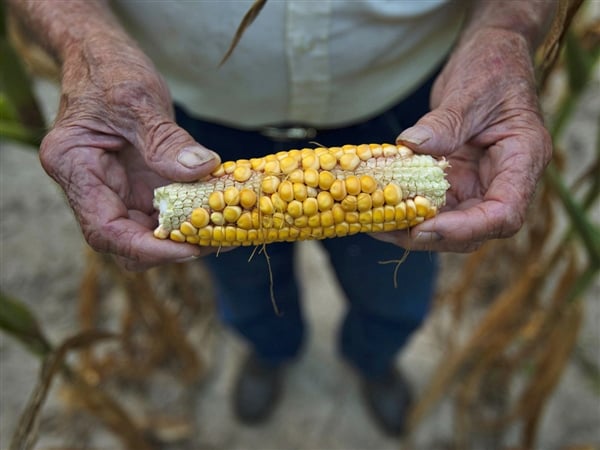Why Aren't Gas Prices Dropping?
As the stock market rollercoaster continues after the downgrading of the US credit rating, one bit of news that has been lost is that oil prices...
4 min read
Erik Bjornstad : May 11 2020

As the coronavirus outbreak spread in 2020 and the consequences hit oil markets, lost in the shuffle was the fact that oil prices dropped to lows not seen in a generation. Consequently, gas prices also dropped down to levels not seen since the years immediately following 9/11 - almost twenty years ago.
It’s easy to simply point to coronavirus concerns as the sole reason why oil prices and gas prices are so low. But these things are more complex than they might appear. As concisely as we can explain, here are the important things you need to know about why oil and fuel prices are so low and what that means for all of us.
There is so much to write on this subject, that we split this up into a two-parter. Here in Part 1, we need to lay the foundation for understanding the important details that determine the why’s and how’s of all this.
To preface all of this, you may remember what happened in late April 2020 - news came out that “oil futures” actually dropped to NEGATIVE value. In other words, someone looking to sell a contract for oil would have to PAY the other person to take it from them.
This shocked a lot of people who had never seen such a thing before. How could the price of oil have dropped so much that people were paying for other people to take it from them? As you might think, a lot of this has to do with the aftershocks from our generation’s “black swan” event, the COVID-19 pandemic. Let’s unpack the why’s of the situation while doing our best to simplify what is, in reality, a much more complex situation than the average person gives it credit for being.
Given how complicated these things are, there’s a few things we need to know from the start.
First is the difference between “spot” prices and “futures”. If you think those are just academic differences, you’d be mistaken. Whenever you’re hearing about oil prices, you have to know if they’re talking about the “spot price” or the price of a “futures contract”.
The spot price is, simply, how much you can buy a barrel of oil for today, right now. On the “spot”.
A “futures contract” is what it sounds like - it’s a contract between two parties where both are obligated to do certain things. One is legally obligated to sell a set amount of oil (like 1000 barrels) to the other, on a specific date, for a specific price. The other party is legally obligated to do some things as well - arrange for delivery to themselves on that specific date, and pay the agreed price for it. The “arrange for delivery” is going to be an important obligation, as we’ll see in a few moments.
There are good reasons for people/companies to want to buy futures contracts. The biggest one that comes to mind would be the value of knowing your future expenses. Say you have a company that uses a lot of something, like gasoline. If they’re confident that they’re going to need, say, 5000 gallons of gasoline in a couple of months, and if they’re concerned that the cost of gas is going to rise in the coming months, they might buy a futures contract for gasoline that locks in a low price on that gasoline. So futures contracts are a way for businesses to gain cost certainty.
Both spot pricing of oil and oil futures contracts play a role in driving things like the price of gasoline. Much of what you’ve been hearing about “negative oil prices” has to do with the price of futures contracts.
Next, we need a basic understanding of what things go into determining the price of oil. At the simplest level, it’s supply and demand. How much does the supply cost balanced against how much does the customer want it (i.e. the demand - how much are they willing to pay)?
For supply cost, there are four categories of expenses that go into that: the cost of getting it out of the ground, the cost of transporting the crude to a refinery, the cost of refining it and splitting it up into its saleable components like gasoline, and finally, the cost of transporting the refined product to the end users.
These costs aren’t going to be the same for everyone, and the difference in one or more of these cost drivers is a big part of why oil from certain oil producing nations costs more or less.
Western Canada produces a substantial amount of oil, but their oil can be more expensive because they have higher costs in the areas of #1 (cost of pulling it out of the ground: their labor costs are high and their oil is harder to pull out) and #2 (Alberta is far away from ports and refineries, so it costs more to get the crude oil to those places). Crude oil from Saudi Arabia tends to cost less because it costs the Saudis less to pull it out of the ground and transport it where it needs to go, plus the crude itself is a high quality so it costs less to refine it. Crude from Russia may be more expensive because all their oil is stuck in Siberia, so it’s more expensive to pull it out and get it where it ultimately needs to be.
All of these things contribute to the cost of oil. But the cost of oil isn’t the same as its price. The price is going to be influenced by the demand side - how much people are willing to pay for it. And COVID-19 has placed us in a historic time where demand is historically low for a couple of reasons. One reason is obvious (think coronavirus) but the other has everything to do with those oil futures contracts we were talking about earlier.
The fact of the matter is, lots of people who don’t want to actually have possession of oil still like to trade for it. They buy and sell futures contracts without any intention of taking possession of the oil they’re trading. Why does this matter?
These futures contracts all have a “date of maturity”. That’s the date you’re legally obligated to arrange to receive the oil covered under that contract. This is not a small matter - you have to take delivery of it or there are huge financial penalties that come down. So it’s not optional to do that, in case you were wondering.
But if you’re someone who’s just a trader or speculator, you probably don’t really want to have to take delivery of 1000 barrels of oil. So as the maturity date draws near on that contract you own, you’ll simply try to sell off the contract a couple of days before it “matures”, for the day’s spot price, and then use the money to go buy another one.
Usually, that plan works out fine. Commodities traders have been doing that for decades. Yet this is not the “usual” time that we are living in. When COVID-19 struck, global oil demand dropped by almost 30% in just two months. This sets us up for considering how these drivers have caused prices to be so low and what that means for us where we’re at.

As the stock market rollercoaster continues after the downgrading of the US credit rating, one bit of news that has been lost is that oil prices...

Those loud collective sighs and groans you heard coming from Washington was the sound of two opposing forces – the Petroleum Refiners Association...

As the coronavirus pandemic spread in 2020 and the consequences hit oil markets, lost in the shuffle was the fact that oil prices dropped to lows not...